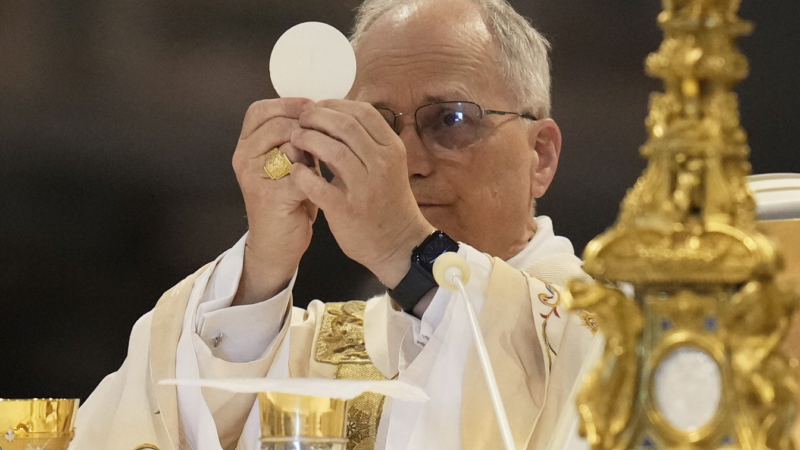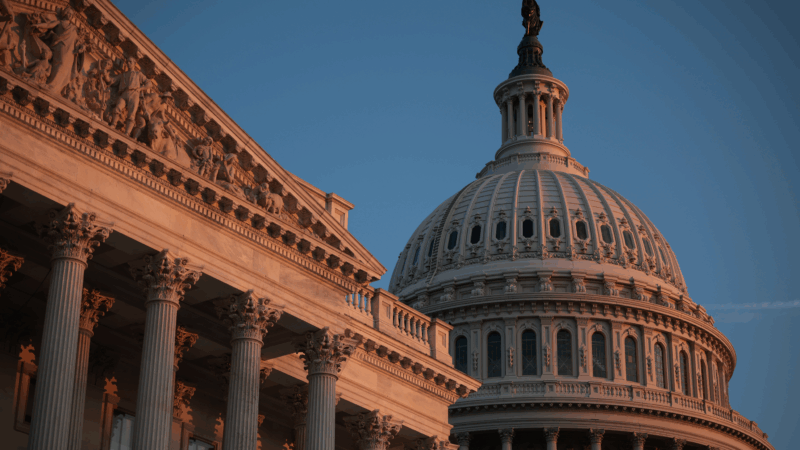‘I am Roman,’ Pope Leo says, as he becomes the bishop of Rome
Pope Leo XIV declared himself a Roman on Sunday, in a ceremonial step to formalizing his role as bishop of Rome.
The bishop of Rome is one of many titles held by the pope.
On his way to the St. John Lateran Basilica for the final steps to take on the role of bishop of Rome, the pope stopped at Piazza Venezia in the center of Rome to meet with the mayor of the city, Roberto Gualtieri.
Speaking before a crowd, Gualtieri said the city of Rome is ready to accompany the pontiff “to affirm the paradigm of a new politics,” and ended his speech by welcoming him: “We are happy that Rome is now your city,” as translated by Vatican News.
The first pope from the United States responded to Gualtieri’s remarks, affirming his commitment as bishop of Rome. The pope said: “Today I can say in a special way that I am a Roman, with and for you,” as the Vatican news service translated.
Margaret Susan Thompson, a professor of history at Syracuse University whose research focuses on religion and politics, said Leo will not be “particularly involved in the day-to-day governing or administrative responsibility” as bishop of Rome. Those duties are usually delegated to an auxiliary or assistant bishop, known as a vicar, she said.

Regarding his statement declaring himself a Roman, Thompson said it was mostly “a symbolic gesture” rather than “a statement repudiating his United States or Peruvian citizenship.”
The pope was born in Chicago and spent two decades in Peru, where he gained citizenship.
The statement speaks to his “particular sense of pastoral responsibility to the people of Rome,” Thompson told NPR.
Although the current pope is the first from the United States, the last three popes before him were not Italian either, noted Thompson. “It’s not a governing statement. It’s an important symbolic statement and pastoral statement.”
Danish military evacuates US submariner who needed urgent medical care off Greenland
Denmark's military says its arctic command forces evacuated a crew member of a U.S. submarine off the coast of Greenland for urgent medical treatment.
Only a fraction of House seats are competitive. Redistricting is driving that lower
Primary voters in a small number of districts play an outsized role in deciding who wins Congress. The Trump-initiated mid-decade redistricting is driving that number of competitive seats even lower.
Homeland Security suspends TSA PreCheck and Global Entry airport security programs
The U.S. Department of Homeland Security is suspending the TSA PreCheck and Global Entry airport security programs as a partial government shutdown continues.
FCC calls for more ‘patriotic, pro-America’ programming in runup to 250th anniversary
The "Pledge America Campaign" urges broadcasters to focus on programming that highlights "the historic accomplishments of this great nation from our founding through the Trump Administration today."
NASA’s Artemis II lunar mission may not launch in March after all
NASA says an "interrupted flow" of helium to the rocket system could require a rollback to the Vehicle Assembly Building. If it happens, NASA says the launch to the moon would be delayed until April.
Mississippi health system shuts down clinics statewide after ransomware attack
The attack was launched on Thursday and prompted hospital officials to close all of its 35 clinics across the state.







